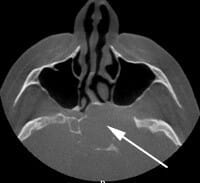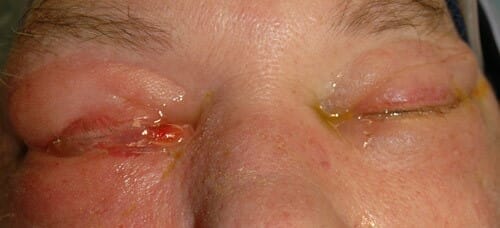Introduction
Most sinus infections are caused by viruses (colds) and will get better without doing anything. Rinsing your nose with salt water (“saline irrigations”) and taking over-the-counter decongestant pills may help your symptoms as the cold goes away. A sinus infection lasting more than 10 days without getting better is probably caused by bacteria. Another sign of a bacterial infection is when your symptoms get better and then worse again. You may have a stuffy nose, yellow, green, or other colored mucus, or pain and pressure in your face. Your doctor may give you an antibiotic medicine for sinusitis caused by bacteria. Nasal sprays with steroid medicine can also help to make swelling and irritation in your nose and sinuses better. Decongestant pills and medicines that break up mucus (“mucolytics”) can also help you feel better. Over-the-counter pain medicines like acetaminophen (Tylenol) or ibuprofen (Advil, Motrin) may help with the pain and pressure that can come with infection.
Inflammation in your sinuses lasting more than 3 months without going away is called “chronic sinusitis”. Sinus infections usually get better without causing extra problems, but sometimes other bad things (“complications”) can happen. Some of the most common complications of sinus infections are talked about below.
Decreased Sense of Smell
Losing some of your sense of smell (“hyposmia”) or even all of it (“anosmia”) can happen with sinus problems. Sometimes, this gets better, but not always. Different things can cause loss of smell in sinusitis. Sometimes, the top part of the inside of the nose can be blocked. This area is called the “olfactory cleft” and is where the smell nerves are. This space could get blocked because of things like allergies or polyps. If inflammation of the smell nerve lasts for a long time, sometimes it can get damaged. For some people, medicines and surgery can help their sense of smell improve, but this is not guaranteed.
Mucocele

All noses and sinuses make mucus, which helps wash away germs and other small things we breathe in. When the normal flow of mucus is blocked, it can get backed up into a fluid-filled ball or “cyst”. This is called a “mucocele”, and it can cause problems by getting bigger and pushing on other important things, like the eyeball. This can cause pain, pressure, and even vision changes. Mucoceles can also get infected, and the infection can spread to other parts of the head. Your doctor may use CT or MRI scans to help make the diagnosis (See Figure 1). Antibiotics or pills that help with swelling and inflammation (“steroids”) can help for a little while, but surgery is usually needed to open the cyst and unblock the sinuses.
Infection of Other Parts of the Head and Face
An infection in the sinuses can move to other nearby structures, including blood vessels, eyes, brain, bone, and skin. This is rare but can be very serious if it happens.
Infection in the eye can cause problems seeing. Sometimes, the infection involves the area around the eyelids (see Figure 2), but it can also spread back to the tissues around the eyeball, including muscles and nerves. Sometimes, the infection can make a pus pocket or “abscess”, which may need urgent surgery to be cleaned out. A very rare but serious complication happens when an infection causes the blood vessels at the back of the eye socket to block off. This can even spread to the brain and the fluid around it. An infection of the sac around the brain and spine is called “meningitis”.
These complications are very rare, but if they happen, they need to be treated immediately. Usually, this means a patient needs to be in the hospital for antibiotics and possibly surgery.


